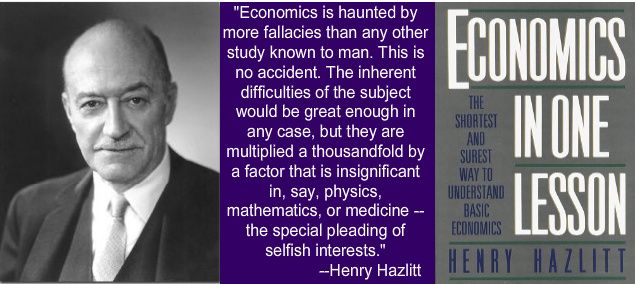Arthur, I just want to clear something up. Thought experiments:
(1)
Someone makes an automated machine in the US that produces near-free sugar out of air and mass quantities with only him as the employee. Would this be good for the US economy or bad for the US economy. Why?
(2)
A factory owner buys a new set of automated machinery that will reduce his employees from 10,000 to 100, increase production, quality and price. Should he be allowed to do so?
(3)
Two kids are willing to rake your yard. One will do it for $25 and the other is happy to do it for $20. Both really want the work but will not work together. Which do you hire?
I´ll give my answers and some comments and hope Arthur dose too:
(1) Clearly a great benefit in the long run like any other invention or procedure that reduces production costs. Yes it will have short term negatives, such as many thousand sugar cane cutters and sugar beet growers will be out of work.
One historic example causing even greater unemployment (at least as a percentage of the then smaller labor force) was the invention of the kerosene lamp. That totally killed demand for construction of new whaling ships (and destroyed the capital existing in the ones already built) nor need of crews to sail them - separated from family for nearly a year; the makers of barrels to hold the oil had to find new markets, etc.
As the short term effects are immediately felt, most draw a false conclusion about the guest ion for the kerosene lamp or the "magic" sugar machine invention benefit for mankind.
(2) Again yes - a great long term benefit, for same reason as in (1) but again with negative short term effect on employment.
(3) The one asking for $20. That leaves me with $5 to spend on something else or invest.
Much of the advanced world has an employment problem and it is growing worse ever more rapidly as machines and automation replace jobs men (or women) once did. World´s largest electronics manufacture, Foxconn, is installing 1,000,000 assembly line automatic production machines. (They will not jump off buildings, nor demand higher pay and better working condition and do not object to working on average 23 hours per day.) I will quote the candy factory worker, again:
The answer to this huge increase in production and great reductions in jobs for men is for men to do what they do better than machines, think. Not calculate, but decides what to calculate and why. Education and more education is what men need. Dropping out of university at age 20 or so to go to work will not be a possible choice. Look at how long many college grads need to spend before they finally accept a "BigMac" job already. Intellectual efforts are man new work.
It is quite like the ancient Greeks - Plato´s et.al. Schools occupied men´s minds with fundamental question but of course only for a rich, favored few. Most Greeks worked long hours or were slaves, doing the same, with no freedom to refuse, to sustain the material needs of all Greeks. Now, of very soon, we too have slaves - intelligent machines that can produce all we need.
Our main problem is philosophical: - We still have a “John Smith mentality” appropriate for the era pof shortages. When in James Town some English aristocracy refused to work, dirty their hands, etc. John said "OK, but those who do not work, do not eat." We believe there is something immoral about eating and not working. (Ironic, is it not when 5% of the population is producting the food and 50% is "earning" it by writing memos, sending paper reports to others, who will mainly file them - or in more advance countries, skipping the paper stage, and just creating bits that will occupy space in other´s computer memories.)
We need to get over that historically ingrained POV. We need to develop a genuine concern and care for our fellow men, now that we can. Go teach where there are few schools, etc. Become a doctor, not as at present because that will give you a large income, but to because of a want to service. Write novels, plays for other to perform, paint, compose music, grow rare orchids, etc. Man is finally free or soon will be, but unfortunately seems to be either too dumb or too poorly educated to know what to with freedom. I guess we are in some transitions phase, where zillions of man hours will be consumed is social chat room exchanges or even places like sciforums, were at least some are educated rather than just entertained.

